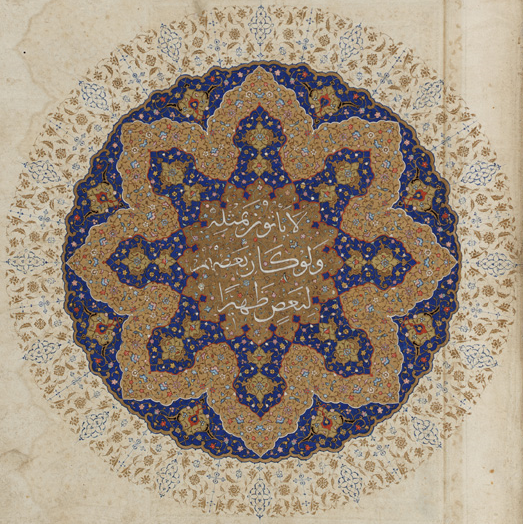I support women’s access to birth control. I use birth control, value it and believe in its ability to protect women from unwanted pregnancies and allow them to live fuller lives while pursuing their own goals. In a world where preparation for a career can take a quarter to a third of one’s life, the ability to postpone childbearing is essential to ensuring economic equality for women.
However. There is an article floating around on AlterNet that makes the dubious, anti-historical claim that pregnancy is the source of women’s oppression and that birth control alone produces equality. I vehemently disagree. Here’s why:
First, birth control has been practiced much more effectively in past societies than we think. The contraceptive herb silphium was widely known in the ancient world and picked to extinction. If all women needed to achieve equality was birth control, Western history would look much different.
Second, arguments like this reduce society to two functional units, man and woman. Then they remove the woman by occupying her with childbearing. The truth is, no society has ever been structured such that the people on the bottom live the same way people on the top do. There is no homogenous “man” or “woman” in history. Underclasses like peasants and slaves have rarely had the luxury of rigidly defined gender roles. Those who lived on the land had to pull together to survive (and yes, that meant pregnant women working outdoors – God forbid!). Those who served others did many of the same tasks: washing, serving, mending, etc. That is not to say that a gendered division of labor was wholly absent, but it was not nearly as well defined as it was for the upperclass.
Women could easily have been the rulers of any society that was not already misogynistic. Royalty, nobility and religious authorities lived mostly lives of the mind. They governed, organized, administered and strategized, while their servants and subjects cleared forests, built cities, died in battle, crossed oceans and traveled difficult roads. All that kings and emperors did, women could also do. It’s naive to think that a woman can’t mount a horse and deliver a speech before battle (yes, even pregnant). It’s absurd to think that the royalty of the past maintained their position based on brute force.
Even if pregnancy did prove to be an obstacle to performing the duties of a sovereign, there is nothing preventing a society from honoring mature women as leaders after they have borne children. Nothing, that is, except misogyny. “Childbearing years” make up only about 25% of a woman’s life (perhaps more now, but we owe this partially to technology and nutrition). Even in times of disease and malnutrition, women could be expected to live almost as long as men did, and even longer if they entered a celibate phase of life after a few children. Additionally, malnutrition would stunt fertility and act as birth control anyway.
This brings me to my third point. Celibacy. The governance of many societies, from the Hebrews to early medieval Europe, has been executed by religious officials. For the early Christian church, being a cleric meant being celibate. Why could there not have been a class of celibate women (for instance, nuns?) who ruled the same way that celibate men ruled? Pregnancy doesn’t even feature here. In the late Middle Ages and Renaissance, roughly 20% of women never married and presumably few of them bore children (as they don’t appear in the records). Why could they not have held public offices, if not for the misogynist belief that women needed the protection of men?
My point is this: I am all for birth control. I am aware that it is one of the factors that enabled me to control my own destiny after leaving fundamentalism. However, I am also aware that my body is not inherently subordinate to a male one. Some will pull the physical strength and size card, but I ask you to imagine a world in which war is not the foundation for society. (Indeed, it has not been the case in every society.) Nor indeed are wars won with strength alone, but more often with brains. Women have brains. We can lead.
The reason birth control is so essential does not lie in nature, but culture. American culture is male-dominated. The structure of society caters to the ideal man: a working, independent individual who does not need to have children. If society favored mutual child-raising, rather than assuming that the man will work and the woman will assume responsibility for the child, pregnancy would not be an obstacle to equality. The career track would be less linear, perhaps, or more accepting of delays. Pregnancy is an obstacle because our society makes it an obstacle. Our society makes it an obstacle because it is a misogynist society. Not the other way around.
Women are inherently equal to men. We are not reduced to our reproductive ability. Misogynists (men and women alike) have used it to justify the suppression of female liberty, but this is hardly the fault of pregnancy. It is the fault of the interpreters of pregnancy, who have been misogynistic. Similarly, racial differences have been interpreted to justify centuries of slavery, genocide and xenophobia, but those meanings are not embedded in the skin or hair. It makes no more sense to blame women’s oppression on pregnancy than it does to blame slavery on height or complexion. Women were no more destined by Nature to be oppressed than were men and women of color.
Let’s knock down a straw pregnant woman while we’re at it: A pregnant woman may be incapacitated for a couple of days while she is actually giving birth. What if a national emergency arises in those 48 hours?! The same thing that happens when a male head of state gets in a ski accident or comes down with the flu: the next-in-command deals with it temporarily. This is not to equate pregnancy with disease, but to point out that contingencies are built into every government, because no human being operates at full physical capacity for 100% of his or her lifespan.
Misogyny persists because people spread misogynist ideas. Misogynist cultures with more resources and better technologies expand, and spread their misogyny to all the cultures they assimilate or communicate with. It could always, always have been otherwise. It didn’t, because history is contingent. Power has momentum and swallows up difference. But none of us can predict the future or explain the past by simply looking at our naked selves in the mirror.
Biology is not history.














